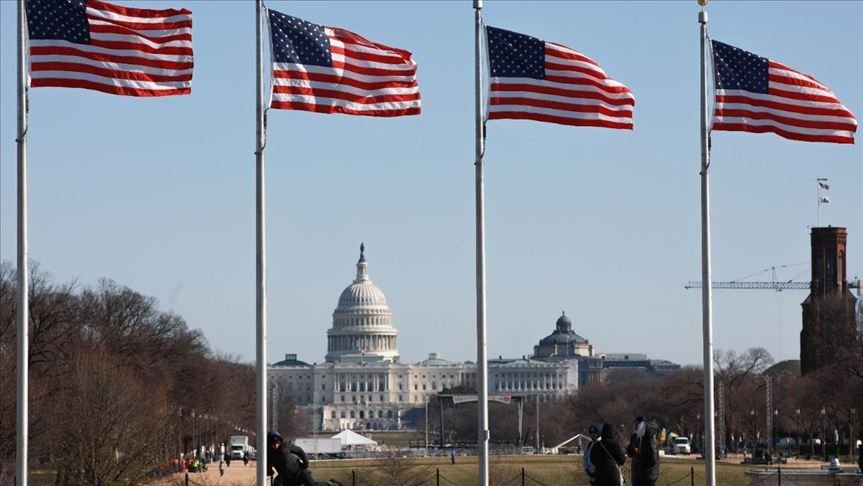La gestión de la pandemia de la Covid-19 por parte del presidente Donald Trump se ha instalado inevitablemente en el debate político estadounidense, condicionado por la importante cita electoral del próximo 3 de noviembre. En el más reciente libro del afamado periodista Bob Woodward, que lleva por título “Rage” (Ira) y llegará a las librerías el próximo 15 de septiembre, se amerita que el inquilino de la Casa Blanca estaba, desde el primer momento, perfectamente informado de la gravedad de la enfermedad pero antepuso a ello sus intereses políticos preferenciales: no crear pánico, no perjudicar la economía, exaltar su gestión…, quitando hierro y evitando movilizar las inmensas capacidades del país más poderoso del mundo para proteger a los más vulnerables. Tan irresponsable actitud catapultó a EEUU a la cima de los países con más casos de Covid-19 diagnosticados en el mundo y a superar la cifra de 190.000 muertos.
Pero Trump no quiere hablar de esto, ningunea las cifras, desprecia a la ciencia y se escuda en culpar a China, convertida, una vez más, en el chivo expiatorio ideal. Su rival, el demócrata Joe Biden, le ha acusado de “traición” en toda regla por mentir al pueblo estadounidense. La primera vez que se vio con mascarilla a Trump en público fue el 11 de julio, diciendo entonces que era “patriótico” su uso cuando en los meses anteriores desaconsejaba ufanamente su utilización.
Consciente de su indefendible posición y fragilidad, el candidato republicano prefiere hablar de otra cosa. Entonces, se encara con las protestas contra el racismo presentándose como el más cabal defensor de la ley y el orden. Pero el racismo en EEUU es mucho más que un problema de orden público. Al negar también el racismo estructural de la sociedad estadounidense para contentar al supremacismo blanco que necesita de su lado en noviembre, todo su discurso pone el acento en la seguridad ciudadana, pero no de cualquier manera. No se trata de tomar medidas para garantizar una mejor seguridad para la población afroamericana sino de agravar el terror que sienten cada día millones de personas de color en un país donde los diferentes cuerpos policiales se destacan por su militarización y recurren al uso de las armas con más frecuencia y facilidad que en muchas otras latitudes.
Una investigación reciente de la CNN destaca que la población negra tiene tres veces más probabilidades de morir a manos de la policía que los blancos. Investigadores de Harvard concluyeron que entre las muertes provocadas por la policía en 17 estados, un 32 por ciento eran negros, a pesar de que solo representaban el 12 por ciento de la población.
Tras el cruel asesinato de George Floyd en mayo de este año se desataron numerosas protestas en EEUU y en el mundo en contra del racismo y de una brutalidad policial que no da tregua. Recientemente, fue el caso de Jacob Blake, que recibió siete balazos de un agente dejándolo paralítico. Y la espiral de violencia se desató nuevamente ante la inexistencia de respuestas políticas serias y dialogadas para superar esta crisis.
La combinación de devastación sanitaria y económica y la eclosión de la protesta racista con las elecciones de noviembre en la agenda ponen de manifiesto la severa crisis de la gobernanza en EEUU. La extrema politización de la información, la militarización al alza de las fuerzas del orden, la pervivencia de una cultura discriminatoria que hunde sus raíces en el fenómeno esclavista, consustancial a la identidad profunda del país, etc., conforman una crisis endógena de múltiples ramificaciones. Aunque la esclavitud fue abolida hace más de 150 años y que las leyes de derechos civiles abolieron las normas segregacionistas, las actitudes xenófobas persisten y es constatable una enorme resistencia a su superación en algunos estados.
El racismo estructural se ha convertido en EEUU en una forma de organización social, destaca la historiadora Valeria Carbone, para quien ser negro te remite a una serie de estructuras sociales y económicas de subordinación y justificadas por una ideología de supremacía de la raza blanca.
Y son también los negros, junto con otras minorías como los latinos, quienes más sufren los efectos de la pandemia. No porque biológicamente sean más proclives a ello sino porque su ubicación en el sistema y la falta de respuesta protectora acentúan su vulnerabilidad. El propio Floyd ejemplificó tristemente esta circunstancia: cuando le hicieron la autopsia, trascendió que además se había infectado del coronavirus antes de ser asesinado.
Vemos la paja en el ojo ajeno, y no vemos la viga en el nuestro, dice el refranero español. EEUU se despacha a gusto cada año emitiendo informes sobre la situación de los derechos humanos, incluidos los de las minorías, en todo el mundo. Con ello pretende realzar una autoproclamada superioridad ética y moral que sin embargo presenta un balance interno a cada paso más demoledor y justamente cuestionado.
----------------------------------------------------------------------------------------------------------------------------------------------
One country, two pandemics
by Xulio Ríos, director of Chinese Policy Observatory
The management of the Covid-19 pandemic by US President Donald Trump has inevitably been installed in the American political debate ahead of the November 3rd Presidential elections.
In the new recent book by the famous journalist Bob Woodward, entitled “Rage” that was published on September 15, Woodward explains how Trump was fully informed of the seriousness of the disease from early in February, but preferred to put his political interests first and not create panic.
Trump gave precedence to the economy while praising his own management and at the same time taking importance from the threat of the virus and failing to mobilize the resources of the most powerful country in the world to protect the most vulnerable. Such an irresponsible attitude has led to the US becoming the worst affected country in the world by Covid-19 with over 200,000 deaths.
But the US President prefers not to talk about this, he ignores the figures, he despises science and hides himself by blaming China, which has once again become the ideal scapegoat. His rival, the Democrat Joe Biden, has charged him with full-blown “treason” for lying to the American people.
The first time that Trump was seen wearing a mask in public was on July 11, saying then that it was “patriotic” to use it when in previous months he proudly discouraged its use.
Aware of his actions and fragility over his response to the virus, the Republican candidate prefers to talk about something else. So he responds to protests against racism by presenting himself as a staunch defender of law and order.
Unfortunately racism in the US is much more than a public order problem and by also denying the structural racism of American society to satisfy the white supremacists whose support he needs in November.
Trump’s entire argument focuses on citizen security, however he does it is a specific way – not by looking for conciliation or acting to guarantee better security for the Afro-American population, but instead by increasing the fears millions of people of color feel every day in a country where the police stands out for its militarization and willingness to use lethal weapons with terrifying speed.
Recent research by CNN highlights that African Americans are three times more likely to be killed by the police than whites, while Harvard researchers revealed that among the deaths caused by the police in 17 US states, 32 percent were black, even though they made up only 12 percent of the population.
After the cruel murder of George Floyd in May of this year, numerous protests were unleashed in the US and in the world against continued racism and police brutality. The Floyd incident was followed by that of Jacob Blake, who was shot seven times in his back by an agent, leaving him paralyzed. And the spiral of violence was unleashed again in the absence of serious political responses and dialogue to overcome this crisis.
The combination of health and economic devastation and the emergence of anti-racism protests with the November elections on the horizon highlight the severe crisis of governance in the US. The extreme politicization of information, the increased militarization of the forces of order, the persistence of a discriminatory culture which is a hangover from the days of slavery and still inherent to the deep identity of the country, etc., make up an endogenous crisis with multiple ramifications. Although slavery was abolished more than 150 years ago and civil rights laws abolished segregationist rules and restrictions, the xenophobic attitudes behind slavery and segregation persist and in some US States there is still enormous resistance to their disappearance.
Structural racism has become a form of social organization in the US, highlights historian Valeria Carbone, who believes being black leads to vulnerability to a series of social and economic structures of subordination justified by an ideology of white supremacy.
And it is also African Americans and other minorities such as Latinos, who are suffering the worst effects of the pandemic. Not because biologically they are more prone to it, but because their location in the system and the lack of protective response accentuate their vulnerability. Floyd himself posthumously highlighted this: when his autopsy was carried out, it was discovered that he was infected with the coronavirus,
There is a Spanish saying that “We see the small problems of others, but not the big problems we have ourselves”. The US is happy to issue reports on the situation of human rights, including minorities, around the world. With this, it aims to enhance a self-proclaimed ethical and moral superiority that its own internal issues put into doubt.



